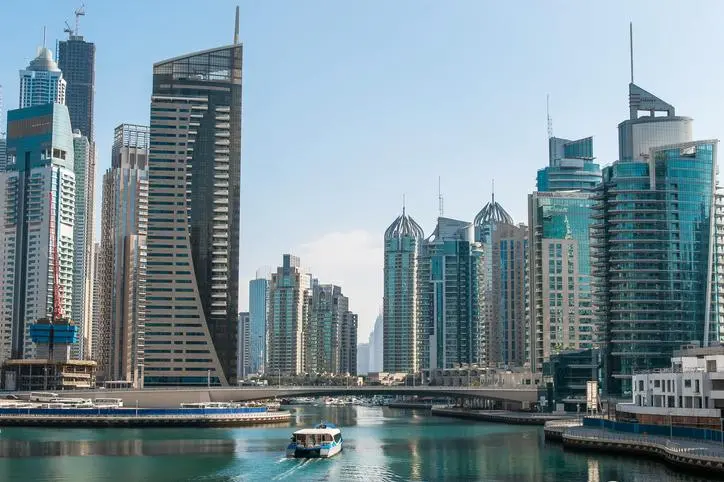PHOTO
Dubai saw remarkable external trade growth in 2019, and with a contribution of 150 billion dirhams, China was its largest trading partner. Then came the coronavirus outbreak, disrupting trade lines and sowing panic in global markets.
Zawya spoke to Moody’s Investors Service to gauge how China’s shutdown will affect Dubai from a sovereign, banking and corporate perspective in 2020.
“China is Dubai’s largest trading partner, and Chinese exports to Dubai will be affected by the factory shutdowns across China and the resulting impact on supply chains,” Thaddeus Best, a Moody’s analyst, told Zawya. “Almost all of the goods that the UAE imports from China are intermediate and finished goods that are at higher risk of being affected by the disruptions to factory output and goods storage facilities.”
Beyond the direct impact of disrupted trade with China, as a global trade hub, Dubai would certainly be exposed to any adverse impact on global growth conditions that may result from an extended outbreak of the coronavirus.
“The lagged effect from this will likely show up in shipping throughput data from March onwards. At the absolute minimum there will be an economic impact across the first quarter of 2020, which will likely extend into the second quarter due to lagged effects in the trade and transportation sectors. However, clearly, there is a non-negligible risk that the impact of the outbreak could extend beyond this period,” Best said.
“All air, sea and road freight from China are affected as workers in the country are choosing to remain at home; hence, all Chinese export consignments are delayed and held up at customs, ports and borders waiting for regulatory clearances in several countries,” Bassel El Dabbagh, Regional Director for Chemical Logistics at Agility for the Middle East and Africa region had told Zawya.
Banking perspective
The UAE Central Bank has advised banks to grant temporary deferrals on monthly loan payments and reduce fees and commissions for customers affected by the coronavirus. The apex bank has set up a committee along with UAE Banks Federation to ensure consumer protection and safeguard the stability of the bank sector.
"In addition to imposing flight restrictions on virus outbreak epicenters, the UAE government response so far has also extended to proactive measures for the financial system. The UAE central bank released guidelines advising banks to implement measures in order to mitigate the effects of the coronavirus on the economy," said, Mik Kabeya, Moody’s AVP Analyst.
“Expectations are that both monetary policy action, some have already been taken, as well as fiscal stimulus measures will be announced,” said, Ehsan Khoman, Head of MENA Research and Strategy, MUFG.
Corporate perspective
Some government-related corporates, particularly those in sectors most likely to be affected by the outbreak like tourism, transportation and trade, have begun to take measures in anticipation of weaker demand arising from the virus outbreak.
For example, Emirates Airline has offered paid and unpaid time off for staff, mirroring the response of other major airline groups like Lufthansa.
"However, as the coronavirus is likely to lead to lower aggregate global demand in the short-term, opportunities to offset lost revenues will be more scarce and measures are likely to focus on cost-cutting,’’ Rehan Akbar, a Moody’s VP-Senior Credit Officer.
On Sunday, the Dubai index declined 7.4 percent, its biggest intra-day fall since December 2014. Banking and real estate shares led the decline. While banking giant Emirates NBD fell 8.7 percent, the blue-chip developer Emaar Properties tumbled 8.2 percent.
"Investment sentiment driven sectors such as real estate and subsequently construction and contracting sector would be materially impacted should situation be prolonged,’’ Akbar said, adding, “Businesses with material leverage, reliance on credit and having weak liquidity are exposed in the current environment and would have little financial flexibility to absorb shock in current environment."
However, Dubai continues to attract new businesses despite economic challenges worldwide. While the emirate’s Department of Economic Development had issued 10 percent more trade permits in February compared to the previous month, Dubai International Financial Centre, the largest financial hub in the Middle East, issued more licenses in the first two months of 2020, despite coronavirus fears, compared to same time in 2019.
(Reporting by Seban Scaria; Editing by Daniel Luiz)
#CORONAVIRUS #DUBAI #ECONOMY #INVESTMENT #CORPORATE #BANKS
Disclaimer: This article is provided for informational purposes only. The content does not provide tax, legal or investment advice or opinion regarding the suitability, value or profitability of any particular security, portfolio or investment strategy. Read our full disclaimer policy here.
© ZAWYA 2020





















